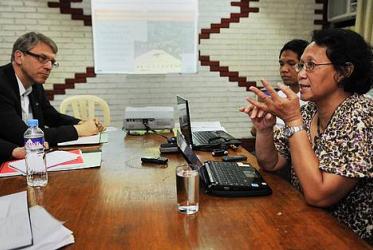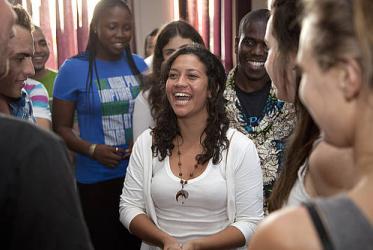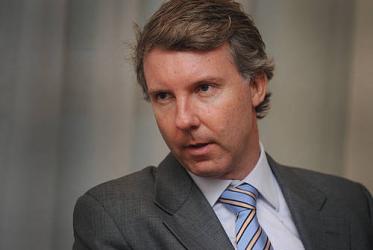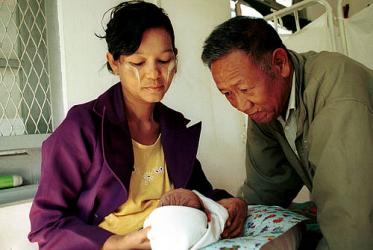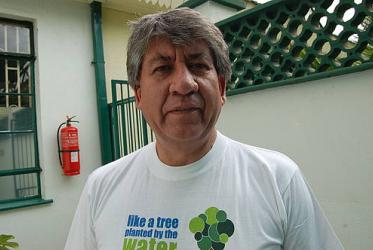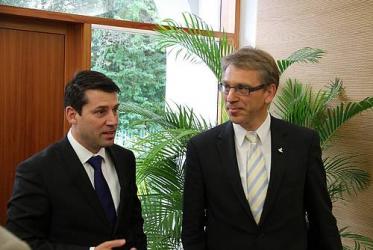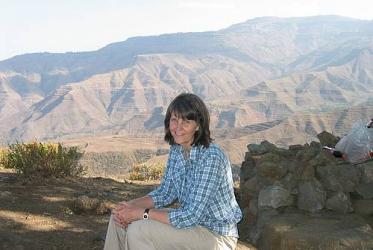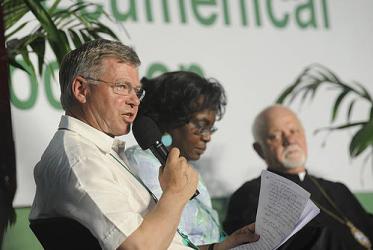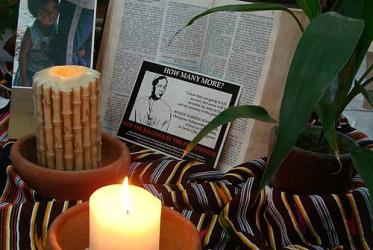Displaying 1041 - 1060 of 1223
CWME invokes new understanding of mission and evangelism
22 March 2012
Christian leaders from Odisha visit WCC offices
16 March 2012
Youth promise active involvement for environmental justice
14 December 2011
Prosecutor encourages churches to help Brazil face its past
09 November 2011
Challenging gender inequity in pursuit of women's health
02 November 2011
A month of health and healing in November
01 November 2011
Ecumenical Institute hosts communications students
04 August 2011
Tveit meets leadership of Swiss Protestant churches
01 July 2011
Building AIDS-competent churches in Southern Africa
23 June 2011
What does “God's security” look like?
24 May 2011
Diverse implications of world Christianity
07 April 2011
Scholars study WCC in 1960s and ’70s
09 March 2011
Norway government minister visits WCC
24 February 2011
Violence in a Philippine village: one family’s story
15 December 2010
Christian alliance for advocacy marks successes, future challenges
09 December 2010
